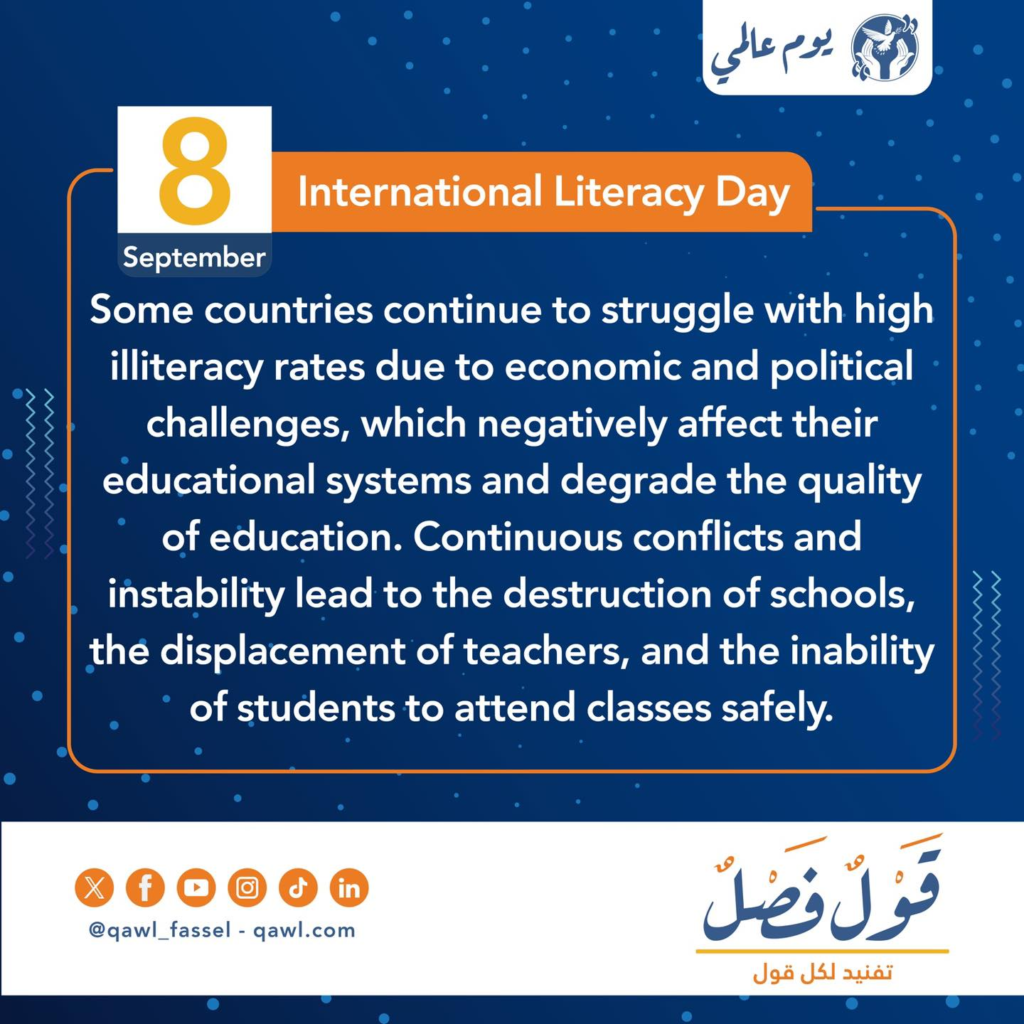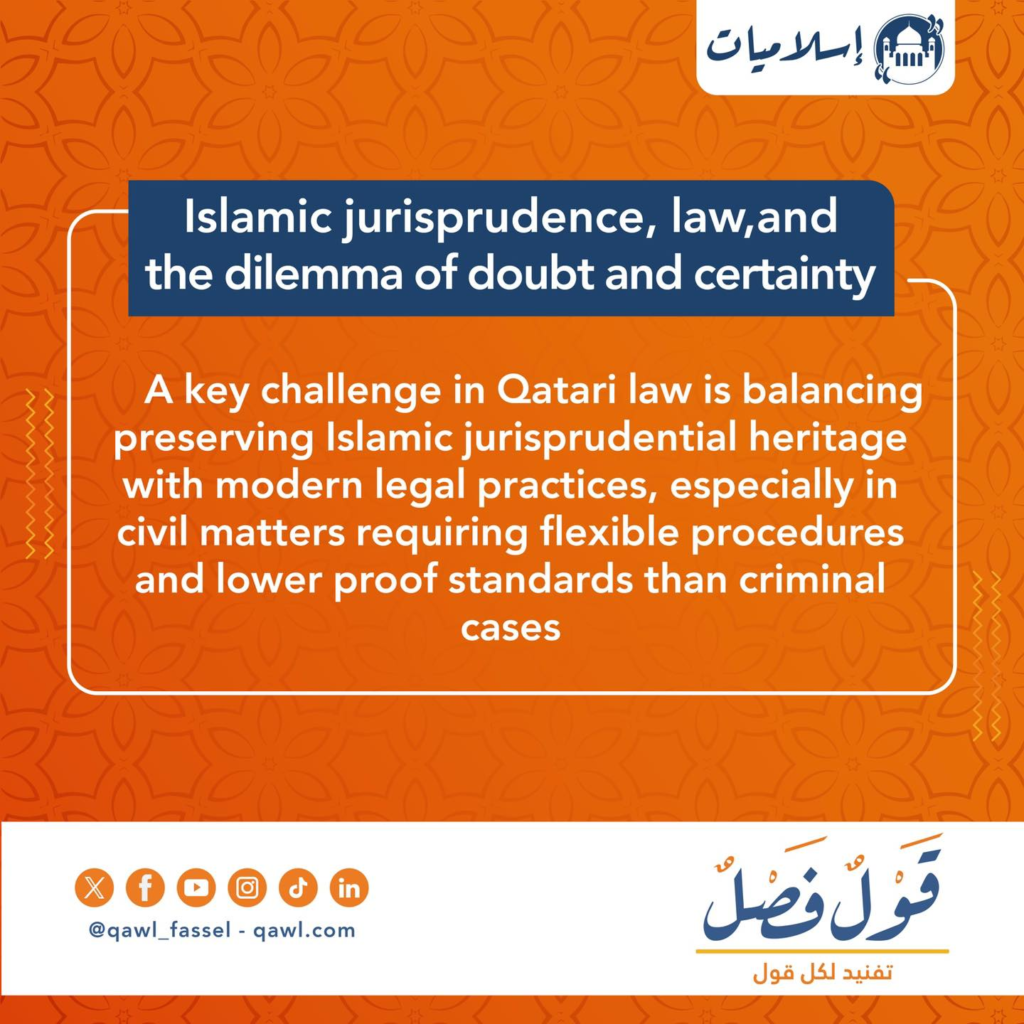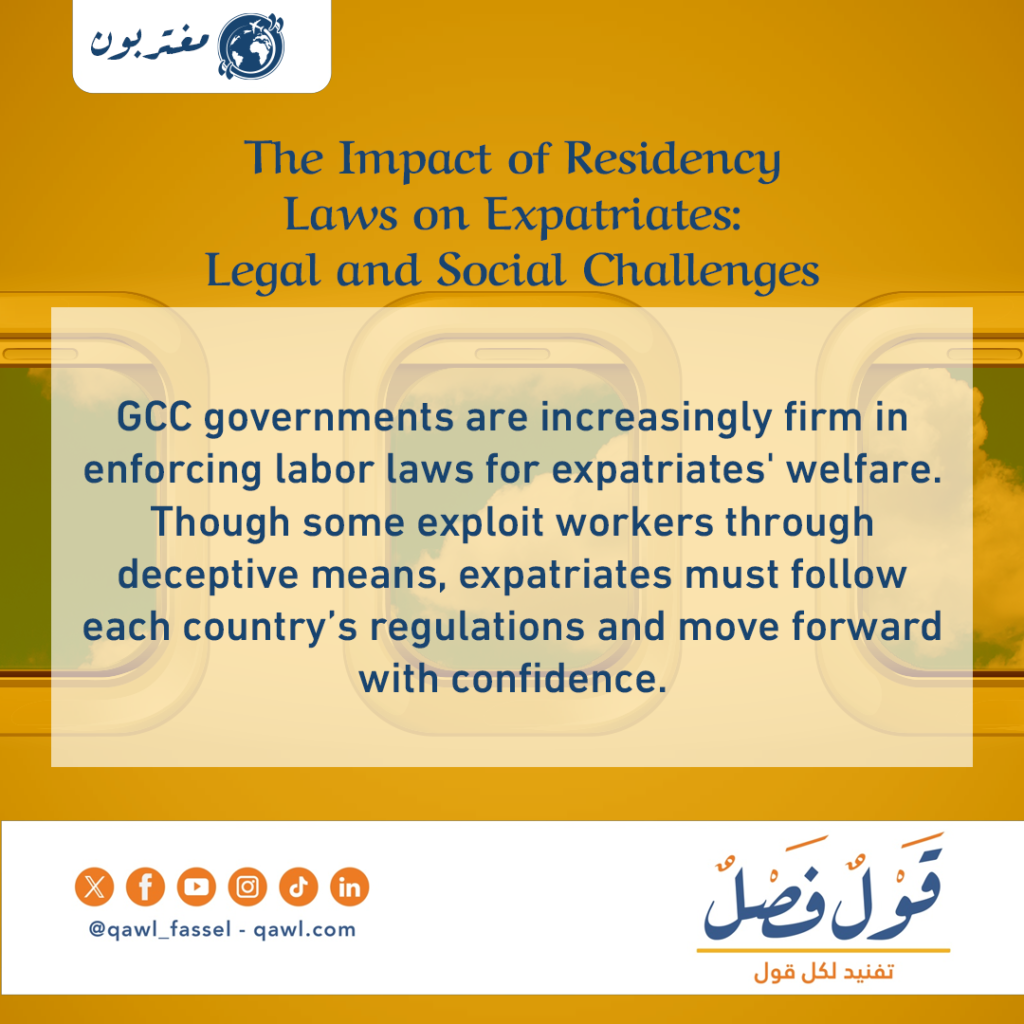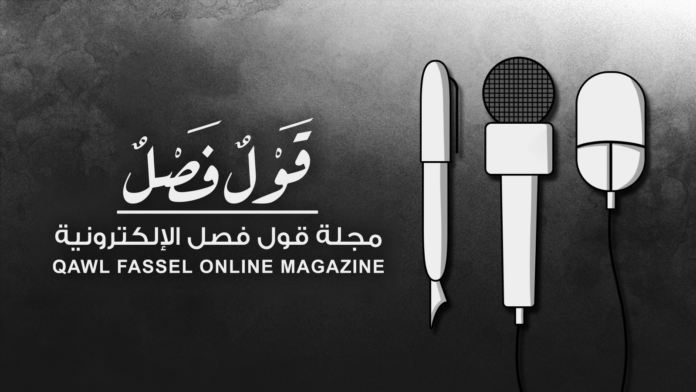In its fifth issue, Qawl Fassel Online Magazine covered ten topics and published current news at the local and regional levels. The “Opinions” section included expert reflections, and the magazine continued to share content on its various social media platforms.

In her article, International Literacy Day – September 8, Rand Saad highlighted that although literacy rates have increased over the past fifty years, there are still 754 million illiterate adults worldwide, most of whom are women. Interestingly, the illiteracy rate among Palestinians is shallow compared to the global level. The 2024 International Literacy Day focuses on “Promoting Multilingual Education: Literacy for Mutual Understanding and Peace.”

Mohamed Elghazaly explored in his article, Islamic Jurisprudence, Law, and the Dilemma of Doubt and Certainty, how Islamic judicial principles rely on circumstantial evidence and presumptive proof to build judgments. However, Islamic criminal law requires “absolute certainty” in severe punishments and retribution cases. On the other hand, civil law operates on the principle of “preponderance”—where evidence only needs to weigh in favour of one side without requiring absolute certainty. Civil law also emphasizes sufficient and objective evidence, such as documentation and witness testimony.

In her article, Debate of Insurance Between Risks and Regulation, Huda Mohamed examined the debate surrounding insurance, which some Islamic scholars liken to gambling—a concept first raised by economist Milton Friedman, a staunch supporter of capitalism. While some Islamic scholars have expressed concerns about gambling, ambiguity, or deception in insurance, others argue that it is a legitimate form of cooperation. They emphasize that insurance is not a sale contract but a modern tool for mutual aid. Many contemporary scholars have worked to develop Islamic-compliant insurance systems, leading to the establishment of numerous Sharia-regulated insurance institutions.

Yousif Al Hamadi tackled the controversial topic of the so-called “Law of Fraternal Killing” in the Ottoman Empire. He pointed out in his article, Myths About the Law of Sibling Killing in the Ottoman Empire, that Orientalist scholars have wrongly accused Ottoman rulers of killing their brothers to secure power. Al Hamadi argued that many Ottoman sultans had brothers who ruled after them without conflicts or civil unrest. Moreover, no significant scholars or religious leaders criticized the practice during the Ottoman era, suggesting that these accusations were fabricated to tarnish the empire’s reputation.

In his article, Scenes from the Day of Sadat’s Assassination, Ahmad Okbelbab reflected on his childhood memories of the day Egyptian President Anwar Sadat was assassinated in 1981. As a 12-year-old boy, he recalled how television broadcasts were suddenly interrupted, and later, it was revealed that Sadat was killed by officers opposing the Camp David peace agreement between Egypt and Israel. The event marked a turning point, as Sadat’s leadership faced opposition from multiple political factions.

In her article, The Role of the International Court of Justice, Rand Saad discussed the relevance of the International Court of Justice (ICJ). She emphasized that international law and justice are integral to the UN’s mission, which has successfully developed a framework of treaties and agreements shaping global interactions. Saad highlighted that international humanitarian law sets rules governing warfare and ensures the humane treatment of civilians, wounded soldiers, and prisoners of war. She also noted that the 1949 Geneva Conventions are among the key frameworks shaping the UN Security Council’s human rights and civilian protection agenda.

In her article “Motherhood in Qatari Human Resources Law,” Huda Mohamed explored how Qatar’s legislators take a balanced view of women’s roles, promoting their participation in the workforce while recognizing their responsibilities as mothers. Many administrative and office tasks are assigned to women in government roles, and many women are employed to address challenges related to maternity leave, breastfeeding, and other childcare responsibilities.

Ahmad Okbelbab argued in his article, Islamic Education vs. Ethical Education, that all forms of education are based on specific references—either religious, moral, or a combination of both. He explained that moral education relies on the principle of “benefit and harm,” which is subjective, as what benefits some may harm others. In contrast, Islamic education is based on the Quran and the teachings of the Prophet Muhammad, as well as religious obligations and prohibitions. Okbelbab noted that some countries have begun to adopt moral education instead of Islamic education, often due to Western pressure.

In his article, Types of Companies in Qatari Law: An Overview of The Legal Framework and Responsibilities, Yousif Al Hamadi provided an overview of the legal framework and responsibilities involved in establishing businesses in Qatar. He pointed out that starting a private business promises freedom from traditional employment but carries financial risks. Al Hamadi detailed the eight types of companies recognized under Qatari law: General Partnership, Limited Partnership, Joint Venture, Public Shareholding Company, Private Shareholding Company, Partnership Limited by Shares, Limited Liability Company (LLC), and Holding Company.

In her article, The Impact of Residency Laws on Expatriates, Shaista Fatima addressed how various factors can lead expats—intentionally or unintentionally—into illegal residency status. She highlighted common scams promoting “freelance visas” in Gulf countries, which legally do not exist, leading job seekers to pay large sums only to find themselves without legal status or employment. Fatima’s article urged expats to be cautious and stay informed to avoid such pitfalls.
This issue of Qawl Fassel offers various topics, reflecting on legal, social, political, and cultural matters while fostering thoughtful discussions on both national and international levels.




